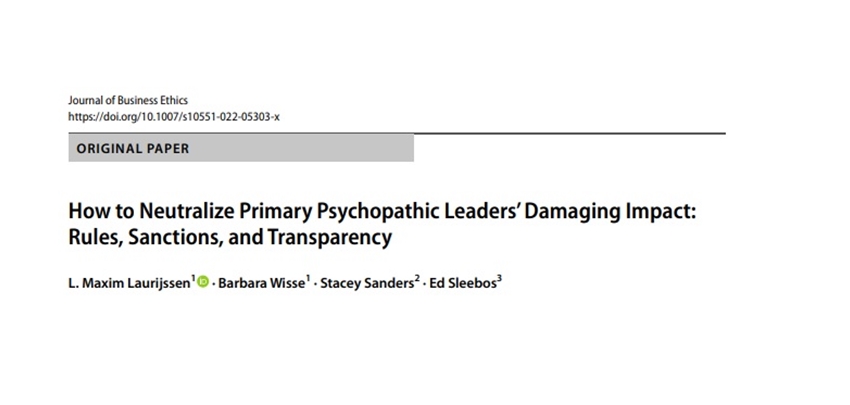What to do about psychopathic bosses?

Primary psychopathy in leaders, also referred to as successful psychopathy or corporate psychopathy, is a key determinant of corporate misconduct. In contrast to the general notion that primary psychopaths’ destructiveness cannot be controlled, we posit that psychopathic leaders’ display of self-serving and abusive behavior can be restrained by organizational contextual factors. Specifically, we argue that the positive relationship between leader primary psychopathy on the one hand and self-serving behavior and abusive supervision on the other will be weaker to the extent that the organizational context (clear rules and policies, sanctionability of misconduct, and transparency of behavior) is stronger. Three studies (one experiment, one survey of leader–subordinate dyads, and one survey of teams) showed that clear rules in particular weakened the positive association between leader primary psychopathic traits and their self-serving and abusive behavior.
You can read the full paper here.

